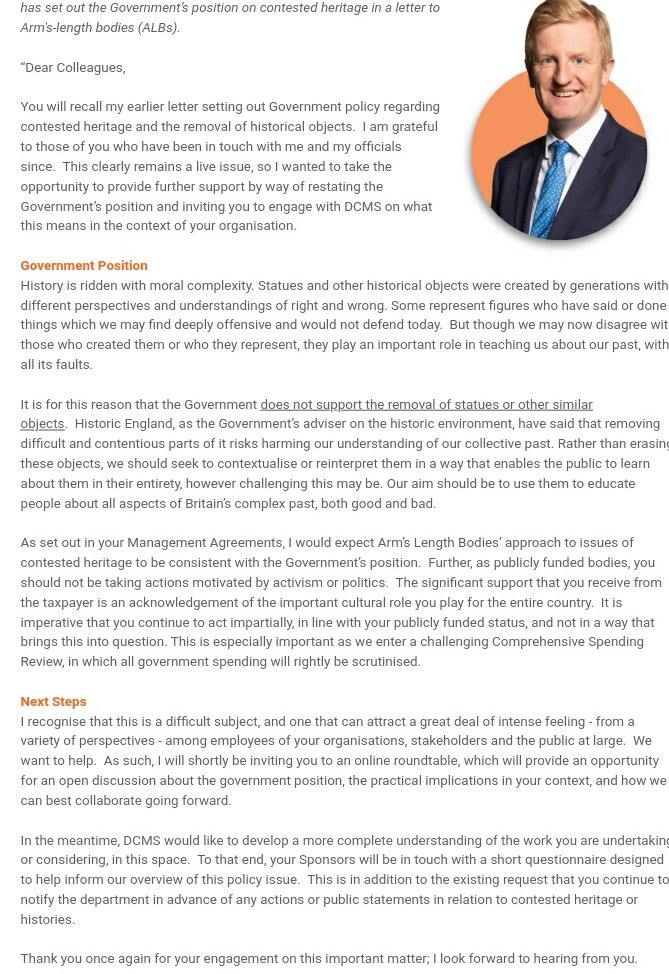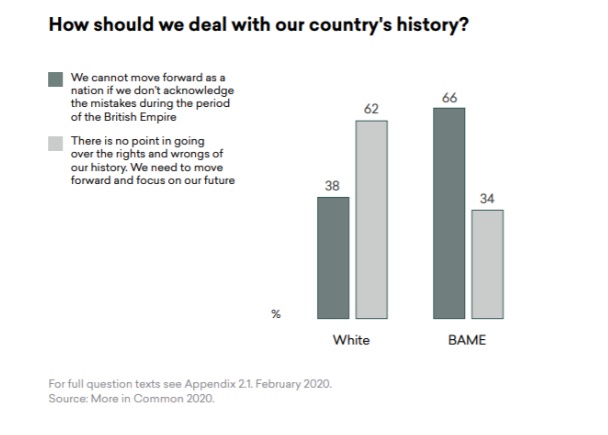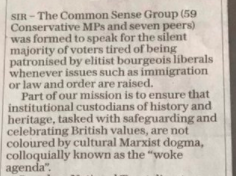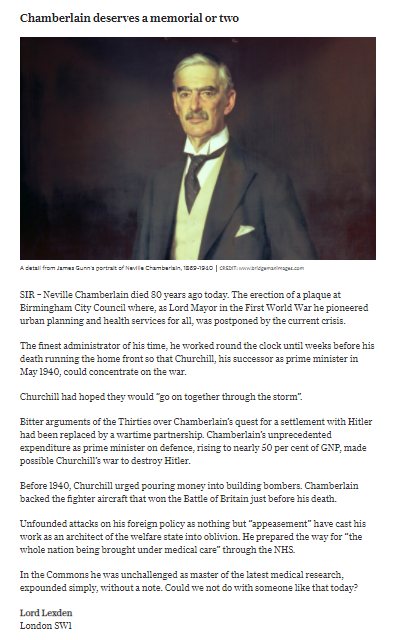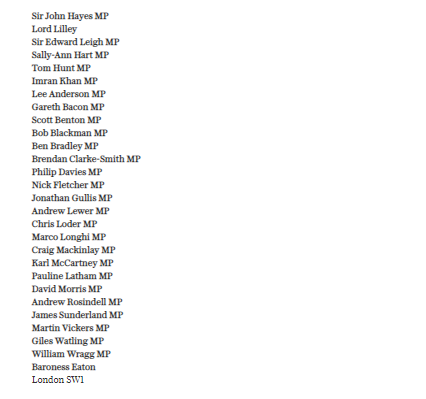The National Trust has the purpose of the permanent preservation of lands and buildings of beauty and historic interest - and of promoting them for everybody to enjoy. The Charity Commission is worried that it may surprise some of its supporters
https://historicengland.org.uk/advice/hpg/publicandheritagebodies/nt/
https://historicengland.org.uk/advice/hpg/publicandheritagebodies/nt/
Its vision is 'for ever, for everyone'. Taking that seriously may make it difficult to avoid engaging [constructively] with contested questions about buildings of beauty and historic interest, given eg civil wars, faith, race, Empire & social change https://www.nationaltrust.org.uk/features/governance-handbook
One could do this well/badly, in different ways. (Heritage bodies often lack confidence in navigating issues of race, so might do it clunkily). It seems an especially weak argument to say it may be outside its purpose if some traditional supporters are surprised by an outputs.
The report notes 'some members of the public complained'. Take them seriously - but avoid valorising complainants. There are very noisy views at the poles of a Contested History debate, but much broader public appetite for explanation, context, education https://twitter.com/sundersays/status/1285656425231011841
Taking purpose seriously shouldn't involve taking sides on political questions - nor pushing any specific view. But nor a "simple" role entailing avoidance of contentful issues, some contentious, of historical & public interest about our national heritage https://twitter.com/sundersays/status/1315253424519348225
The National Trust report on the links of colonialism to its properties can be read here. (I have read some sections, but not all of it). https://www.nationaltrust.org.uk/features/addressing-the-histories-of-slavery-and-colonialism-at-the-national-trust#Download%20the%20report
Blog about the NT approach by director of culture and engagement
https://www.nationaltrust.org.uk/blogs/directors-blog/beautiful-places-challenging-histories
https://www.nationaltrust.org.uk/blogs/directors-blog/beautiful-places-challenging-histories
It seems to me self-evident that nobody could present properties like Powis Castle to the public without giving an account of Robert Clive's role in India, where he amassed his collection that is on display.
Most noticed - and criticised - section is this description of Chartwell & Churchill. I do think some of this criticism is merited here. Include Bengal Famine & maybe his backbench vote on the 1935 Govt of India Act, but the overall paragraph seems odd, tonally, and unbalanced.
Earlier thread on this NT report https://twitter.com/sundersays/status/1308732838775316480
I feel we need more clarity about the foundational principles of what we should be trying to do with contested history. My take https://twitter.com/sundersays/status/1308737480326340608
"It is not expected to become a statutory inquiry" reports the Daily Telegraph, in the 12th paragraph of its page 1 news splash, 'National Trust could face inquiry into its 'purpose'.
The Telegraph also reports that Baroness Stowell will step down from chairing the Charity Commission when her three year term ends in February https://www.telegraph.co.uk/politics/2020/10/23/national-trust-could-face-inquiry-purpose/?utm_content=telegraph&utm_medium=Social&utm_campaign=Echobox&utm_source=Twitter#Echobox=1603485164
'Charity Commission considers complaints about National Trust report - but does not launch inquiry, despite hinting it might during a podcast' could become a contender for a Constantine Award for Tepid Culture War clashes, along with 'Charles Moore doesn't apply for BBC Chair'
Thread on government policy: Culture Secretary "expects the approach of arms-length bodies to issues of contested heritage be consistent with the government's position" (don't remove statues). https://twitter.com/sundersays/status/1309964553380298753
'Rather than removing objects,*should* seek to contextualise or reinterpret them in a way that enables public to learn about them in their entirety, however challenging this may be ... aim to educate about all aspects of Britain's complex past, both good and bad' - Oliver Dowden
Charity Commission has Equality & Diversity strategy, 2019-23. Feels "starting from promising position" as better than civil service average on gender. But worse than cs average on ethnic diversity; none of senior leadership from bme background (in 2018)
https://www.gov.uk/government/publications/charity-commission-diversity-and-inclusion-strategy-2019-to-2023/diversity-and-inclusion-strategy-2019-to-2023#maintaining-our-representation-where-we-are-doing-well-and-improving-our-representation-in-areas-where-we-could-improve
https://www.gov.uk/government/publications/charity-commission-diversity-and-inclusion-strategy-2019-to-2023/diversity-and-inclusion-strategy-2019-to-2023#maintaining-our-representation-where-we-are-doing-well-and-improving-our-representation-in-areas-where-we-could-improve
Charity Commission does now publish workforce diversity data. This has risen from 6% to 8%. This is fairly typical of charitable sector it regulates; major charities staff teams tend to be about half as diverse as overall UK workforce; but even less diversity at top than FTSE100
As ACEVO (2018) note, overall, charities in the UK have a weaker record than either the private sector or the public sector on ethnic diversity in the workforce, overall, in senior leadership, and at board level.
https://www.acevo.org.uk/wp-content/uploads/2018/07/Racial-diversity-in-the-charity-sector.pdf
https://www.acevo.org.uk/wp-content/uploads/2018/07/Racial-diversity-in-the-charity-sector.pdf
Perhaps a narrow conception of who "the public" are in this thought. Some of the supporters of the National Trust are clearly one important audience (and will have a plural range of views); both National Trust & Charity Commission both need to serve broader public [everybody] too
A Commission inquiry seems v.unlikely. "Ordering NT not to publish further reports" an imaginary hypothetical, which would go outside CC purpose & inhibit National Trust from carrying out its own purpose.
David Olusoga at British Library recently said: https://twitter.com/sundersays/status/1313915806145806336
David Olusoga at British Library recently said: https://twitter.com/sundersays/status/1313915806145806336
This is an interesting point/thread about the potential tension between the (narrow) legislative objects and the broader (for everyone, forever) purpose/mission of the National Trust https://twitter.com/Unity_MoT/status/1319948629046710272
Telegraph page 1 story reports on some questions asked by National Trust members at virtual AGM about recent report. It reports questions were read out from 'Diana from Leicester', 'Sally from Windsor' and 'Carole from Boston' . Their surnames not given, nor are the answers.
26 Conservative MPs have written to the Telegraph to argue that "history must not be rewritten" to reflect "snowflake preoccupations"
Nb, the govt's argument against removing statues is *for* "contextualising & reinterpreting" to understand "complex history" "both good & bad"
Nb, the govt's argument against removing statues is *for* "contextualising & reinterpreting" to understand "complex history" "both good & bad"
It has often been asserted that there is no right not to be offended, because free speech, so the argument against 'snowflakes' is usually that they do not understand the free exchange of views
So this appears to be a complex bit of 'snowflake jujitsu' ...
So this appears to be a complex bit of 'snowflake jujitsu' ...
Rewriting history is the job of the historian. (How do you write anything now about the past without doing that?). The question is about the quality of our engagement with the past, rather than an objection in principle to discovering anything new! https://twitter.com/sundersays/status/1313919235509321728?s=19
The public appear to have more confidence in our ability to handle historic complexity about the past https://twitter.com/sundersays/status/1285656425231011841?s=19
An interesting finding from the recent @MiC_Global report on different intuitions about difficult or contested aspects of history.
Telegraph letter from 28 Conservatives, challenging the idea of portraying "multiple perspectives on history"
This letter is the first public activity of the Common Sense Group of Conservative MPs and peers, "formed to speak for the silent majority of voters tired of being patronised by elitist bourgeois liberals whenever issues such as immigration or law and order are raised'
The next Telegraph letter argues that Chamberlain's reputation has been dominated by bitter arguments about "appeasement" (placed in inverted commas) and
so calls for a rethinking of his historical legacy, with a more plural perspective on his legacies.
so calls for a rethinking of his historical legacy, with a more plural perspective on his legacies.
Source: Letters to the Daily Telegraph, 9th November https://www.telegraph.co.uk/opinion/2020/11/09/letterswill-police-break-armistice-day-ceremonies-wednesday/

 Read on Twitter
Read on Twitter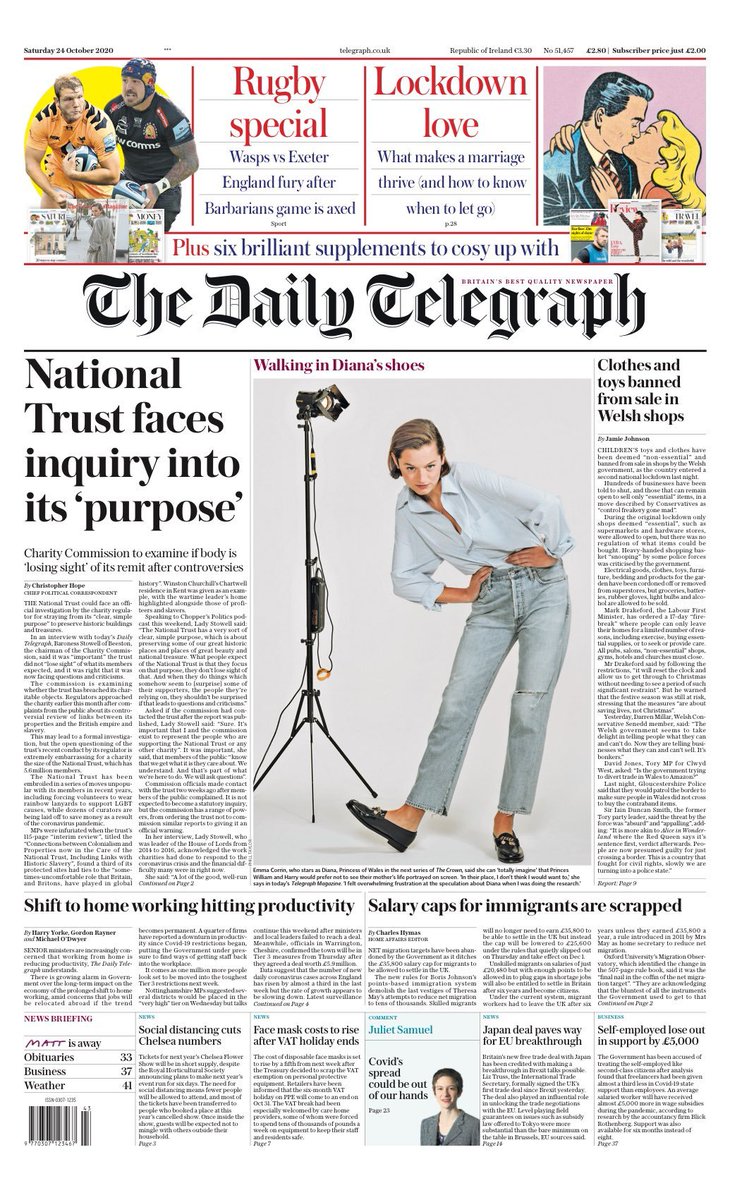

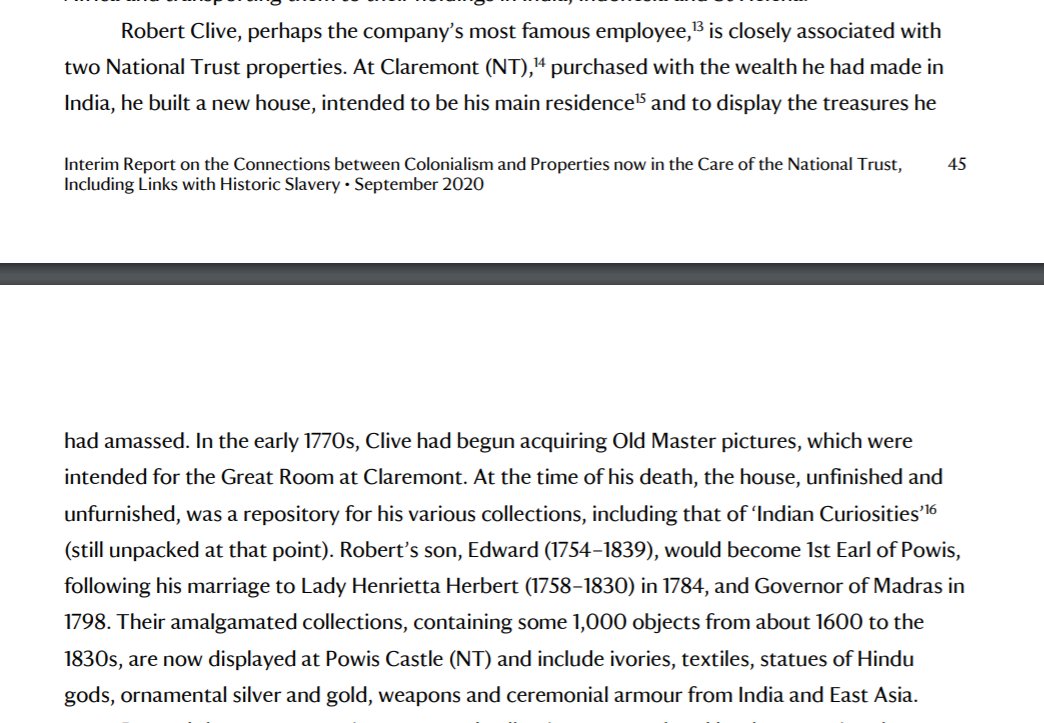
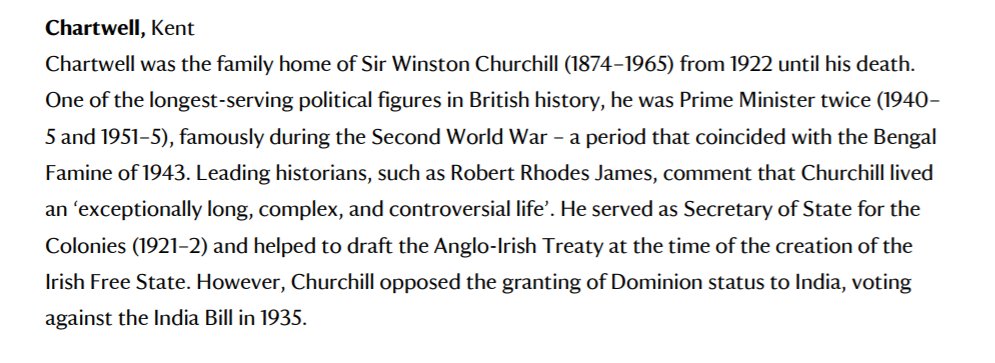
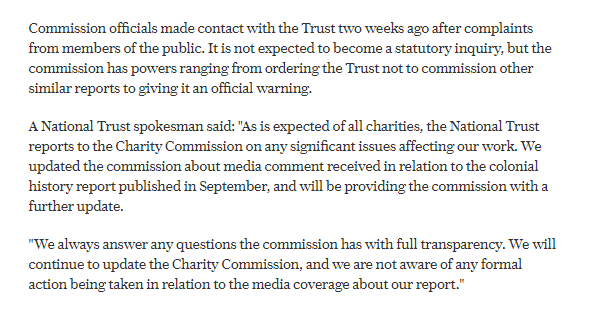
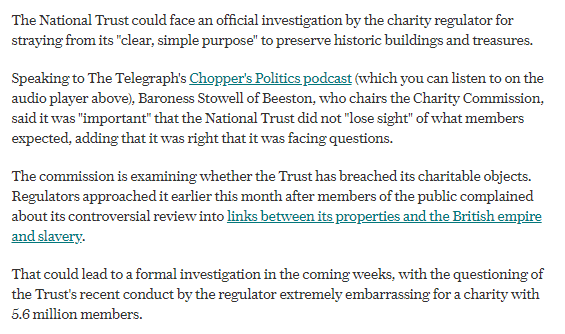
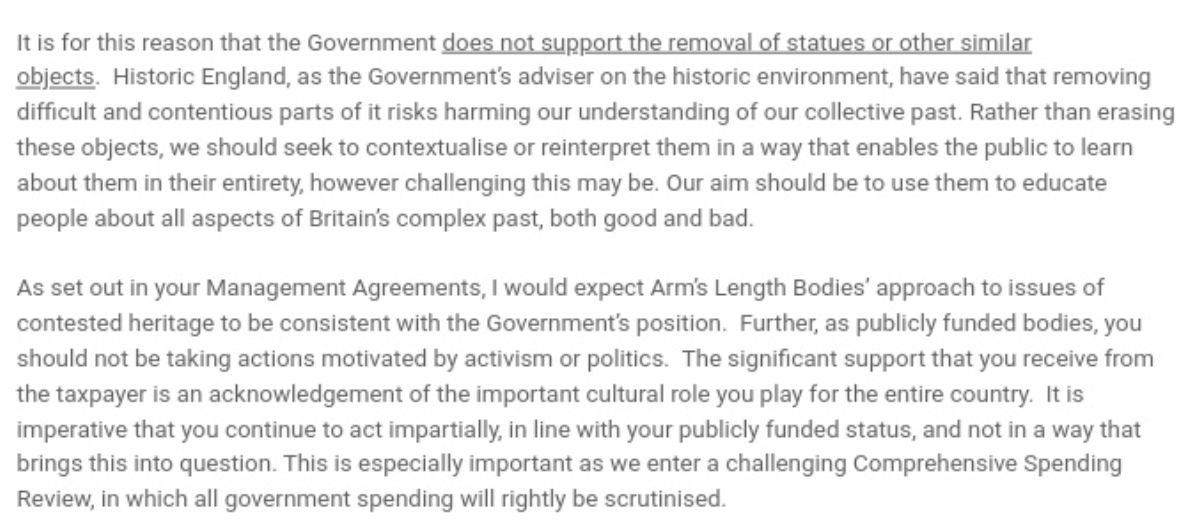
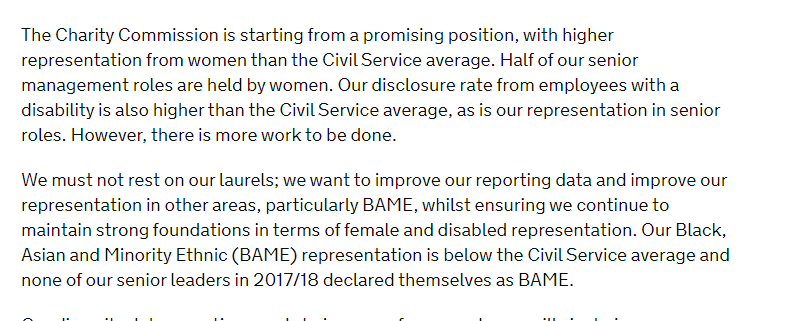
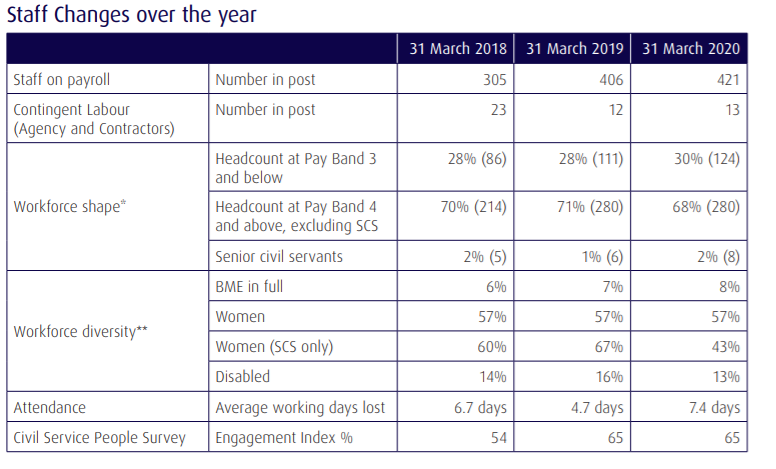
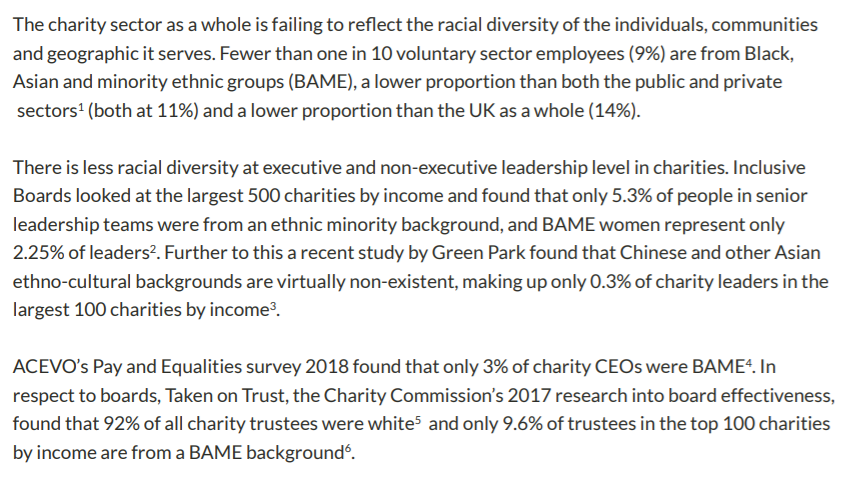
![Perhaps a narrow conception of who "the public" are in this thought. Some of the supporters of the National Trust are clearly one important audience (and will have a plural range of views); both National Trust & Charity Commission both need to serve broader public [everybody] too Perhaps a narrow conception of who "the public" are in this thought. Some of the supporters of the National Trust are clearly one important audience (and will have a plural range of views); both National Trust & Charity Commission both need to serve broader public [everybody] too](https://pbs.twimg.com/media/ElFjez_X0AItZ9l.png)

